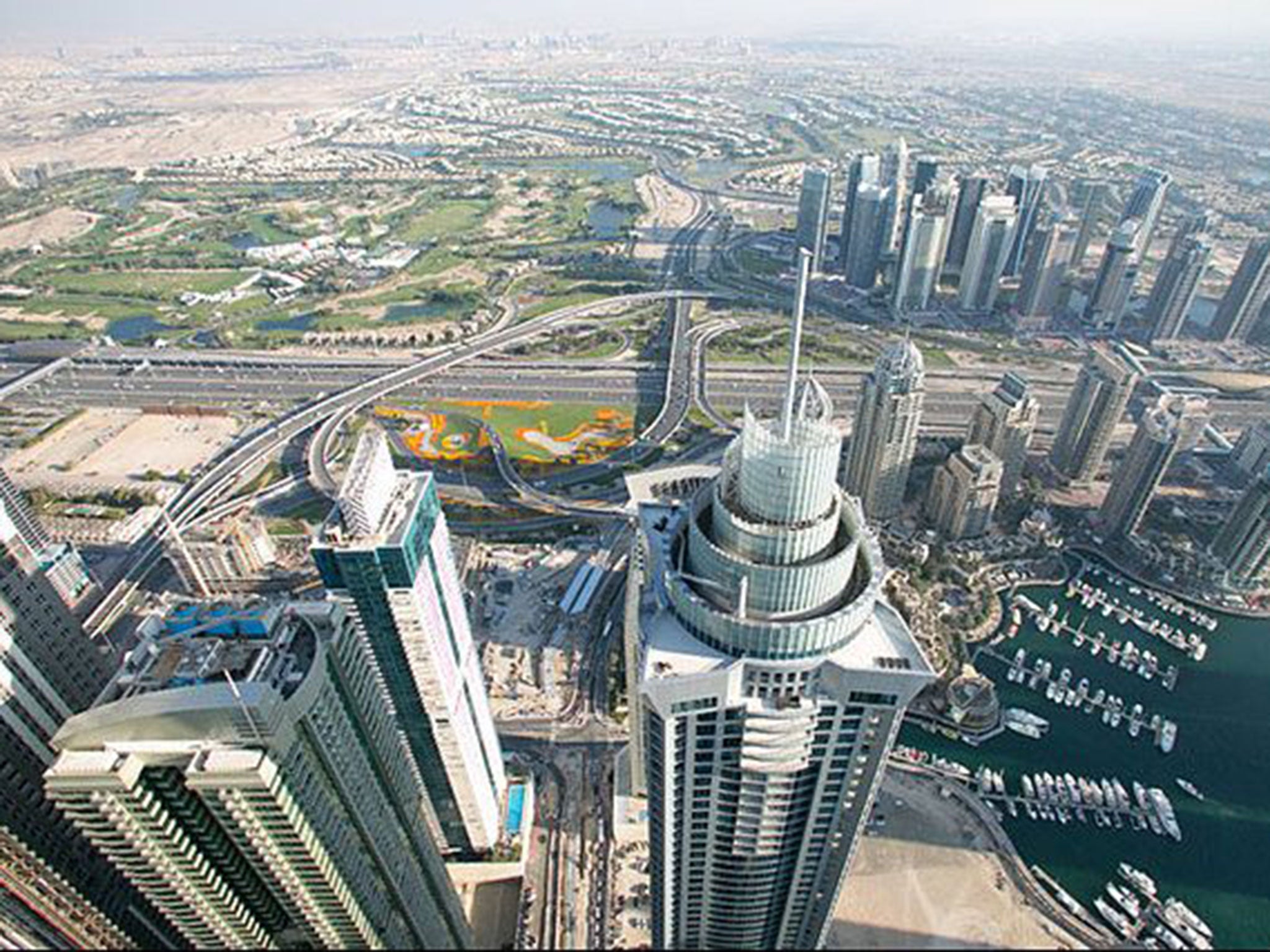Treasure hunt: clawing back overseas loot of the UK’s crime lords
The Crown Prosecution Service has intensified its efforts to seize the cash squirrelled away abroad by Britain’s Mr Bigs, with 84 cases currently being pursued

With its vertiginous views of the super-yachts moored in Dubai’s marina and share of a building dubbed the “epitome of high living”, the flat on the 49th floor of the Torch Tower must have seemed the perfect investment for London drug baron Redwan El Ghaidouni.
For the cannabis importer, it offered a glamorous bolt-hole with year-round sunshine in one of the world’s tallest skyscrapers. More importantly, El Ghaidouni, 37, could be confident that his ill-gotten gains would be safe from the British authorities in a far-off jurisdiction with no record of liquidating the assets of UK-based criminals.
Unfortunately, for the drug smuggler from Kingston upon Thames, south-west London, who is currently serving a nine-year jail term, he did not allow for the intensified efforts of the Crown Prosecution Service (CPS) to seize the bank accounts squirrelled away overseas by Britain’s Mr Bigs.
The 49th-floor flat was last month sold on behalf of the CPS and more than £400,000 returned to taxpayers in the first successful enforcement of a British confiscation order in the United Arab Emirates.
The seizure and sale of El Ghaidouni’s holiday home with the close co-operation of the UAE authorities is part of a wider strategy by prosecutors to pursue organised criminals who have benefited from the globalisation of finance and property markets by hiding their assets abroad behind layers of shell companies and anonymous bank accounts.
For decades, police and the courts have pursued Britain’s Mr Bigs in their traditional bolt-holes of the villas and golf courses of Marbella, Malaga and elsewhere on Spain’s “Costa Del Crime”. But with the diversification of Britain’s £52bn organised crime industry into everything from rhino-horn smuggling to internet scams, investigators are having to cast their net wider.
Chastened by criticism of a historic failure to take back only a small proportion of the hundreds of millions of pounds of criminal proceeds ordered to be seized by the courts, the CPS this summer announced a new strategy to improve its rate of return, with an increased focus on loot held overseas.
The CPS is currently pursuing 84 separate cases to recover assets abroad worth at least £19m, according to figures obtained by The Independent.
A cornerstone of the policy is the deployment of six new specialist lawyers around the world to co-ordinate asset seizures with host governments. One of the advisers has been placed in South Africa, one of a host of new countries favoured as hiding places by British gangsters.
One of the UK’s most wanted fugitives, Welsh drug trafficker and fraudster Martin Evans was last month arrested in Johannesburg after three years on the run from a 21-year jail term for crimes including a £900,000 swindle involving an ostrich farm.
Evans, 52, from Swansea, exemplifies the new brand of internationally savvy criminal, salting away his career profits of at least £4.8m in property including a £2m villa in Marbella and bank accounts in Latvia, Antigua, Switzerland and the Dominican Republic. Nearly £1m was seized on behalf of the CPS from a Swiss bank account this week.
He was thought to have hidden in America, the Netherlands and the Caribbean before his eventual arrest outside a luxury housing development in South Africa.
Nick Price, head of the CPS Proceeds of Crime Service, told The Independent: “Organised crime operates on a far more international basis today than it had previously. Inevitably, assets are secreted abroad or moved around countries.
“The message we are sending is that if there has been a hiding place in the past, there is not going to be one in the future. Where there are realisable assets, we will be pursuing them.”
The scheme puts international asset seizure on a quasi-commercial footing by offering partner countries a share – generally around 50 per cent – of the value of successfully returned property. A proportion of the amount realised by the UK Government is then awarded to the pursuing agency such as CPS, which has pledged to reinvest its income from confiscations into further foreign recoveries.
But while the seizure of £417,000 from El Ghaidouni might be an important victory, it represents just a fraction of the sums ordered to be seized from criminals by the courts in England and Wales.
According to the Government’s own estimates, the value of British criminal assets in Spain and the UAE alone is £200m. The CPS acknowledges that less than 5 per cent of this sum – £9.6m – is currently identified as realisable.
Jenny Barker, associate for business crime with law firm Peters and Peters, said: “Will those with assets to hide take notice of the CPS’s improved focus and think twice about using the UAE or Spain?”
“Realistically it will just move the fight to a different battleground, as another jurisdiction becomes the favoured destination for criminal assets.”
Bookmark popover
Removed from bookmarks